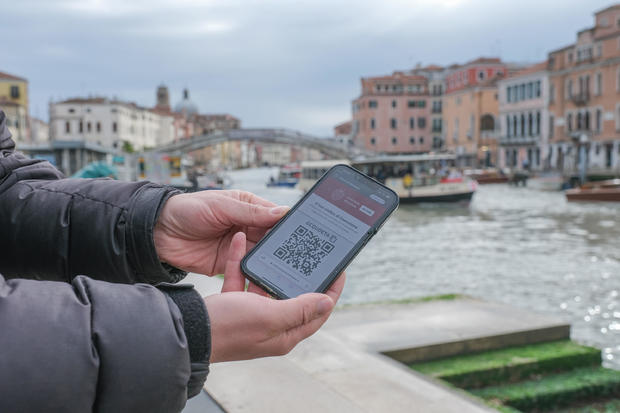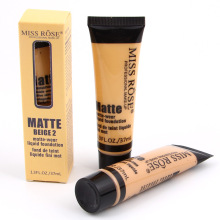您现在的位置是:半岛新闻网 > 关于我们
The most basic president in history
半岛新闻网2024-09-22 07:39:28【关于我们】5人已围观
简介Editor's note: This is the 30th entry in the writer's project to read one book about each of the U.S
Editor's note: This is the 30th entry in the writer's project to read one book about each of the U.S. Presidents in the year prior to Election Day 2016. Follow Marcus' progress at the@44in52Twitter account and the44 in 52 Spreadsheet.
When I think of President Calvin Coolidge, I think of vanilla. Or mayonnaise. Or low-salt peanut butter.
There's just enough flavor to make it worth the effort, I guess. But my life is no better off for tasting his story -- with the possible exception of his wife's pet raccoon. We'll get to that.
SEE ALSO:History's most scandal-plagued president: Was he all that bad?The basic dullness of Coolidge himself is no smear against the writer of the 2013 biography Coolidge, Amity Shlaes. But her tome weighs in at 1,025 pages, and maybe -- maybe-- the guy is worth 200.
The book is meticulously researched but there's little life to it, much like Coolidge himself. Which brings to mind Dorothy Parker's famous quipabout the quiet, sleepy president upon hearing the news of his death: "How could they tell?"
Tweet may have been deleted
Shlaes at least had a sense of humor about my less patient online reactions:
Tweet may have been deleted
Still, the sentiment holds true: Coolidge is a colorless president. Partly that's the fact that he arrived in the wake of Teddy Roosevelt, William Taft, Woodrow Wilson, and the sex and speculation scandals of the abbreviated Harding presidency.
To be fair, Coolidge "suffers" from following TR/Taft drama and Harding's "scandals"
— 44 in 52 (@44in52) July 16, 2016
Like the band playing a new song after their big hit.
That's not to say Coolidge didn't accomplish anything. He won high praise for his handling of the Boston Police strike as governor of Massachusetts in 1919.
Police went on strike for their right to form a union. Coolidge acted decisively in backing Police Commissioner Edwin Curtis. The National Guard was called in to quell an outbreak of violence -- and, thanks to a wave of anti-Bolshevik paranoia, the striking policeman didn't garner much sympathy from the public.
Over a thousand officers were fired and even more new hires were made, before the strike reached an end. Coolidge gambled, and it paid off. And that's what made him famous in Republican circles.
Tweet may have been deleted
Beyond that, though, there's little for a Coolidge scholar to get excited about. Coolidge wasn't one for words, earning the nickname "Silent Cal" as Vice President. Detractors saw it as proof of his being a bit dim.
Republican supporters believed he was simply choosing his words carefully, showing respect for the weight that the words of a president can carry. That couldn't be further from the philosophy of the present GOP candidate.
But his apparent ignorance of the Teapot Dome Scandal, while serving as Harding's Vice President, doesn't leave us much wiggle room in assessing Coolidge. He attended cabinet meetings where the brilliantly-named Secretary of the Interior, Albert Bacon Fall, discussed his plans that led to the scandal.
So Coolidge was either dimwitted for not understanding what was happening or culpable in refusing to report whatever he didunderstand.
 Not so cool now, huh?Credit:
Not so cool now, huh?Credit: There's little negativity here from Shlaes, who's focus (just like John Dean on President Harding) is very much about a rehabbing of Coolidge's image.
Threads go unconnected, random figures appear and then disappear with little regard for their importance in Coolidge's narrative, and though we're well into the "Roaring Twenties" in Coolidge's presidency, you'd barely know it.
That's not to say the journey through Coolidge's life was without it's pleasures. This book led to perhaps one of my favorite bits of American trivia thus far in the project: Coolidge's wife kept a pet raccoon named Rebecca in the White House.
Tweet may have been deleted
I'm not sure what it says about Coolidge that the raccoon is the most lasting impression of this book. It may say something more about me. I was reading it against the backdrop of the GOP convention, which I helped cover for this very website.
At the end of the night after hours of pro-Trump fear-mongering, I needed escape. Instead, I ended up traveling through Shlaes' positive assessment of Coolidge's economic policy.
There's an after-dinner combination of tastes that are hard to get rid of. My main compensation? I likely won't have to read about the guy again. Even considering the fact that Ronald Reagan was a big Coolidge fan, he made about as much impression on American history as he did on me and Dorothy Parker.
Days to read Washington: 16Days to read Adams: 11Days to read Jefferson: 10Days to read Madison: 13Days to read Monroe: 6Days to read J. Q. Adams: 10Days to read Jackson: 11Days to read Van Buren: 9Days to read Harrison: 6Days to read Tyler: 3Days to read Polk: 8Days to read Taylor: 8Days to read Fillmore: 14Days to read Pierce: 1Days to read Buchanan: 1Days to read Lincoln: 12Days to read Johnson: 8Days to read Grant: 27Days to read Hayes: 1Days to read Garfield: 3Days to read Arthur: 17Days to hear Cleveland: 3Days to read Harrison: 4Days to read McKinley: 5*Days to read T. Roosevelt: 15*Days to read Taft: 13*Days to read Wilson: 10*Days to read Harding: 3*Days to read Coolidge: 7
Days behind schedule: 6
很赞哦!(3)
相关文章
- Echo Dot (5th gen) deal — get it for $29.99 at Amazon
- Superb PC Gaming with Next
- Tesla Model 3 Performance is here. Here are 5 things that make it great, and 3 drawbacks.
- A Global Tour of Bakeries With Fascinating Histories
- Students get free entry at second Rawalpindi Test but what’s the catch?
- How Covid Changed Nursing
- Nuclear SMR welding breakthrough: A year's work now takes a day
- Video: Wave
- This shark lives for centuries. Scientists discover how it resists aging.
- Rocket engine expert, ex
热门文章
站长推荐

Haider all set for Paralympics Ceremony

Tesla Model 3 Performance is here. Here are 5 things that make it great, and 3 drawbacks.

Venice becomes first city in the world to charge day trippers a tourist fee to enter

“快节奏”时代是否还需要读书?

Malan retires from international cricket

S. Korean patrol vessel to be transferred to Ecuador

'Drinking bird' toys upgraded to generate clean energy from water

14 Haunting Places in Literature